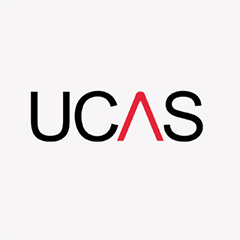20 April 2023
Mature students: Managing your university offers

Author
Nicola Turner
Senior Fair Access Adviser, UCAS
If you have already submitted your UCAS application, chances are you’re waiting to hear if your application has been successful. Or perhaps you haven’t applied yet (you have until 30 June) but you want to know what happens next. The next step after applying is waiting for your offers and replying to them.
What offers might I receive, and what do they mean?
For each choice, you will receive one of four possible responses:
- Conditional offer - a place on the course has been reserved for you, but you will need to meet certain requirements (usually qualification results) before it is confirmed. The offer will outline the conditions you need to meet (e.g .an exam grade).
- Unconditional offer - the place on the course is yours if you want it. Check the offer carefully in case there is anything you need to do (e.g. provide proof of your results).
- Unsuccessful - you do not have an offer. You may be given a reason but, if not, you may want to contact the university or college to find out why.
- Withdrawn - either you or the university has cancelled the application. If the university or college withdrew, the reason will be given.
Find full details about offers on the UCAS website - types of offer.
I’ve received offers - now what?
Well done! Now you need to look at your offers and reply. If you’re applying for more than one course, you’ll need to wait for all your offers first - all of this is done in your UCAS Hub (where you made the application). Your options are:
- Firm acceptance - for an unconditional offer, this means you are accepting the place on the course and it is all yours - you don’t need an insurance choice. For a conditional offer, this is your first choice and will be confirmed if you meet the offer conditions.
- Insurance acceptance - a backup choice to a firm acceptance, usually a course with lower offer conditions, or an unconditional offer in case you miss out on your first choice.
- Decline - once you accept firm/insurance choices you must decline all other offers.
Get more information about replying on the CAS website - replying to your UCAS undergraduate offers.
If you haven’t yet heard back from one or more of your choices, don’t panic! Each university and college works to a different timeframe, so it doesn’t mean you’ve been unsuccessful. For reference, if you're applying to study in 2023, you should expect to have heard by 18 May 2023 if you sent your application before 25 January 2023. If you apply after this date, you will receive your offers by 12 July 2023.
But what if I don’t receive any offers at all?
Don’t worry, you still have several options if you want to start a course this year.
If you used all five options on your UCAS application but received no offers, you can use Extra - a free service where you can apply to additional courses (one at a time) until 4 July. If you are eligible to use this, it will show as an option in your UCAS Hub.
Read all about Extra on the UCAS website - Extra choices.
If you didn’t use all the choices on your application, you don’t need to use Extra - you can use the remaining places on your existing application by 30 June in the Hub. If you originally only applied to one choice and want to add more, you’ll need to pay a £4.50 application fee.
If you are holding no offers, you can apply to courses with vacancies using our Clearing service which opens on 5 July. Again, you can do this in the UCAS Hub.
Find out more about Clearing on the UCAS website - What is Clearing?
If you decide to follow any of these options, it’s still important to fully research your options first to make sure that the course is right for you. It’s always a good idea to speak to the university directly before you decide to talk through their requirements and to discuss your own needs.
What else should I be thinking about at this stage?
If you are disabled, or have a long-term health condition, learning difference or mental health condition, think about applying for the Disabled Students’ Allowance (DSA). If you haven’t already shared an impairment or condition with the university, it’s not too late - contact their disability adviser or student support team to discuss any support you might find helpful.
Universities and colleges can support students with all sorts of personal circumstances to help them succeed in their studies. For example, if you have ever been in care, if you have parenting or caring responsibilities or served in the UK Armed Forces, speak to the student support team to see what support they offer - this might be practical (e.g. onsite childcare provision), financial (e.g. a bursary), or academic (e.g. exam adjustments).
Find out more about student support on the UCAS website - Individual needs.
You can find more information about applying as a mature student on the UCAS website - Mature undergraduate students, including advice about getting ready for the start of your course and managing your finances.
Don’t forget you can contact UCAS on 0371 468 0 468 or via our social media channels if you need any help with your application.
